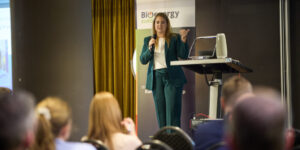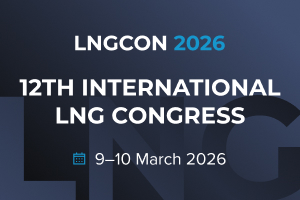Bioenergy Europe showcases central role of renewables

Held at the Le Louise Hotel on 5–6 November, the event explored how bioenergy can accelerate Europe’s energy transition — from replacing fossil fuels in heating to decarbonising industry and enabling carbon removals.
The conference was opened by Swedish MEP Emma Wiesner (Renew Europe), who underlined bioenergy’s key role in achieving Europe’s energy and climate ambitions.
“Let this mandate be the time when we finally bridge the mistrust in bioenergy and build a foundation for this sector to contribute with what it’s been offering for decades,” Wiesner said. “Bioenergy is and continues to be a vital part of the transition to fossil-free societies — it’s about time we take that opportunity.”
In his keynote address, Nicholas Dottino, CEO of Graanul Invest, Europe’s largest wood pellet producer, praised the sector’s innovation and resilience amid shifting policy landscapes.
“Our industry stands as one of Europe’s true industrial strengths, driven by innovation and sustainability,” said Dottino. “But growing policy volatility from carbon markets and inconsistent regulation demands adaptability. If we transform that volatility into opportunity, by fostering flexibility and trust, Europe will maintain its leadership.”
The first day of the conference featured speakers from RISE Research Institute of Sweden and Elimini, who discussed how innovation and policy can work hand in hand to speed up decarbonisation.
A special session of Bioenergy Europe’s Working Group on Sustainability brought together experts from Bioenergy Europe, the Bioenergy Associations of Finland and Austria, and Drax Group, who shared insights on biodiversity safeguards and the carbon footprint of wood energy.
A high-level panel debate on the cascading use of biomass, moderated by Azadeh Daheshmand, Regulatory Affairs Manager at Uniper and Chair of the Working Group on Sustainability, gathered representatives from CEPI, Södra, and the German Bioenergy Association. The discussion emphasised the need to maintain flexibility in how biomass is used, while ensuring sustainability and resource efficiency.
Christoph Pfemeter, President of Bioenergy Europe and Managing Director of the Austrian Biomass Association, stressed bioenergy’s strategic importance in Europe’s heating transition.
“Relying on electricity alone will not make our energy system stable or affordable,” he warned. “Without a strong contribution from bioenergy, electricity prices will continue to rise, undermining both industry and households — and ironically, making electrification itself more difficult.”
The second day of EBF 2025 turned the spotlight on industrial decarbonisation, showcasing practical examples of biomass fuels already replacing fossil energy in manufacturing. Companies including BKtech Group, Justsen Energiteknik A/S, ENGIE, and KNAUF Iberica presented case studies showing that renewable heat from biomass can cut emissions and energy costs without compromising reliability or performance.
Eurogypsum, representing Europe’s gypsum industry, also highlighted the growing interest of energy-intensive sectors in renewable heat solutions. The session marked the beginning of a new initiative from Bioenergy Europe to foster closer dialogue between bioenergy technology providers and industrial players aiming to decarbonise their operations.
Concluding the event, Jean-Marc Jossart, Secretary General of Bioenergy Europe, reaffirmed the sector’s commitment to driving Europe’s energy transition.
“EBF 2025 once again demonstrated the depth and diversity of the bioenergy community,” Jossart said. “Europe has the technologies, the know-how, and the determination to deliver on the energy transition.”



















